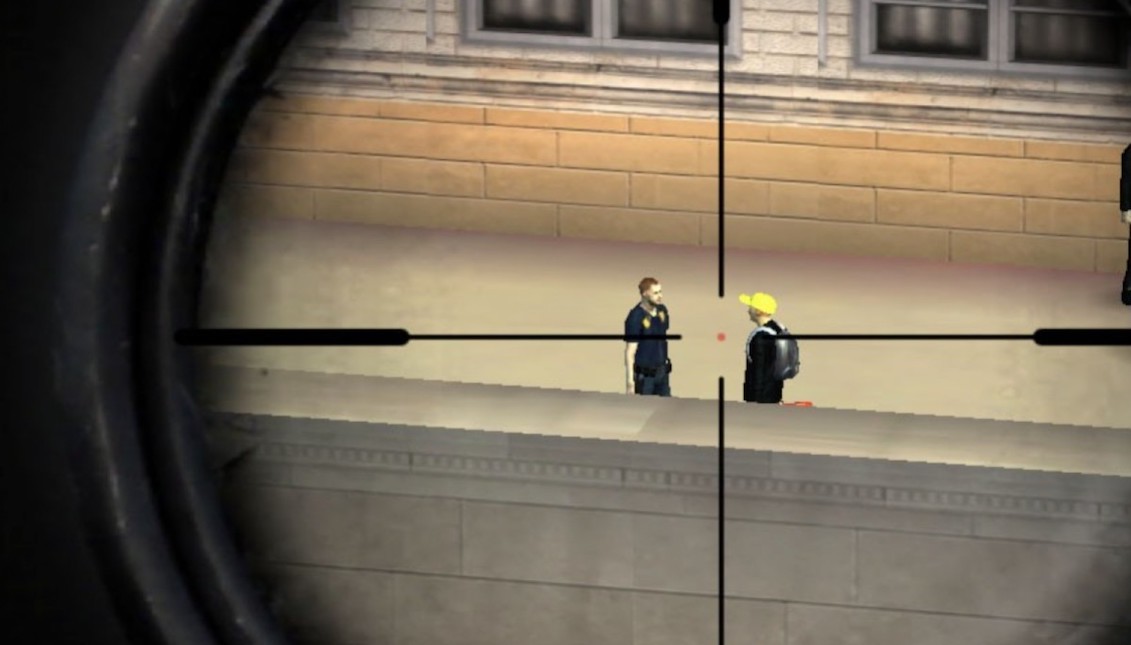
How to kill a journalist: the argument of fiction in videogames
Sniper 3D Assassin is in fashion since 2014, with more than 10 million downloads. "Take your sniper rifle, aim and start the killing," reads the game…
So far so good with Sniper 3D Assassin, or at least, within the fiction of a violent video game to which we've grown accustomed to since Death Race (1976), perhaps the first violent videogame in 8bits that today would emulate the terrorist attacks in Barcelona or Marseille.
However, when you find the Breaking News mission – where the player must kill a journalist after bribing a police officer for information - we are filled with philosophical doubts.
"A journalist bribed a cop and will pick up a briefcase from the cop," the mission says. "The briefcase is full of sensitive documents. Make him famous in a different way."
Meaning: "kill him and turn him into a star, a hero ... or are you the virtual star? Once the mission is completed, the video game shows a new message: "this is breaking news."
In the age of likes and engagement, gamification appeals to success through recognition, whether by killing a journalist - or a butcher - to obtain "breaking news" in Sniper.
Michael Mac-Vicar, a representative of the Brazilian company TFG creator of the game, said he assumed that the public would understand Sniper 3D Assassin as "a fantasy."
However, after New York Times journalist Jamal Jordan showed his amazement on Twitter when he discovered his nephew's mission in the console, the controversy over videogame violence broke out, focusing on how it perfectly fits hate speech against journalists.
The discussion reached Mac-Vicar, and TFG decided to eliminate the mission: "we take into account the comments of our players. After listening to our community, we decided to eliminate the 'breaking news' mission," the representative said.
In the book by Adam Alter, Irresistible, the author states that a whole series of design, marketing, and gamification rules are involved in video games to make the player's feedback visible.
It's not so farfetched to think that using a contemporary issue like the persecution of journalists is part of that form of engagement through a well-known and renowned speech in the Trump era, where it has been made clear that it is normal to attack journalists in times of "alternative events."
To what extent does fiction become a weapon or a reprehensible object?
Sniper 3D Assassin is not the first violent game that has been launched on the market and generated controversy.
Rape Date is another game full of reactions. It designs a zombie apocalypse where the player is one of them, and his mission is to spread chaos and destruction where there is human life and, if presented in the form of a woman, you can sexually abuse her.
RELATED CONTENT
According to the Rape Date developer, Desk Plant, their game is a fiction: "You can't consider banning rape in fiction from a reasonable perspective without prohibiting murder and torture. Murder is normalized in fiction, while rape isn't."
But what does "normalize" mean?
Rape Day and the Breaking News mission of Sniper 3D Assassin have reignited the debate about the terms and policies in the creation of videogame fictions and the creation of toxic behaviors such as hate speech.
Two studies - one from Oxford and the other from Psychological Science - comment that the relationship between violence and videogames is unlikely to be scientifically based since there is no evidence to sustain it.
The video game is perhaps the eighth form of art.
If we think about movies like Salò, or the 120 Days of Sodom or the interactive episode of Netflix, Bandersnatch, we realize fiction makes us uncomfortable since it has become a reflection of reality: violence has always been knocking at our doors; now through more developed formats.
In a still-young world like the digital one – a world without policies or legislation – we can't help but question beyond political correctness: are we becoming a literal society that censors all types of content because it doesn't know how to define its limits? Or is it that we need stricter legislation for digital content because the hypersensitivity of current public opinion shapes the market?
In the end, should we not rule under the premise that all violence in real life is unacceptable but can be theorized using reflection to find its nuances in fiction?











LEAVE A COMMENT:
Join the discussion! Leave a comment.